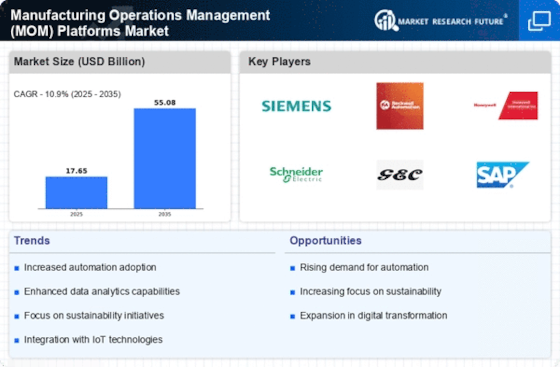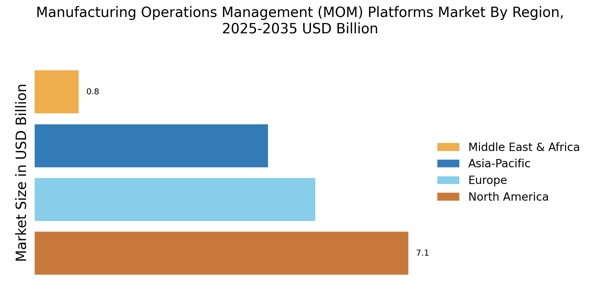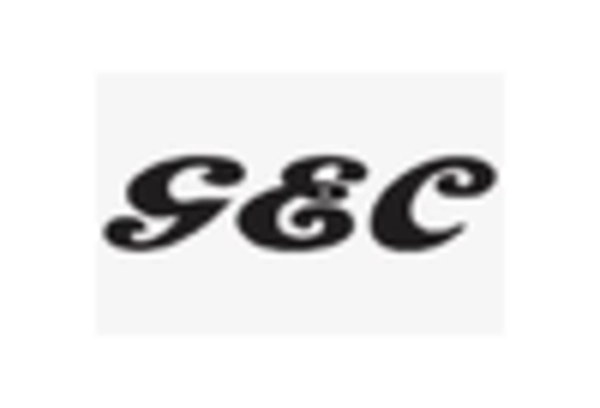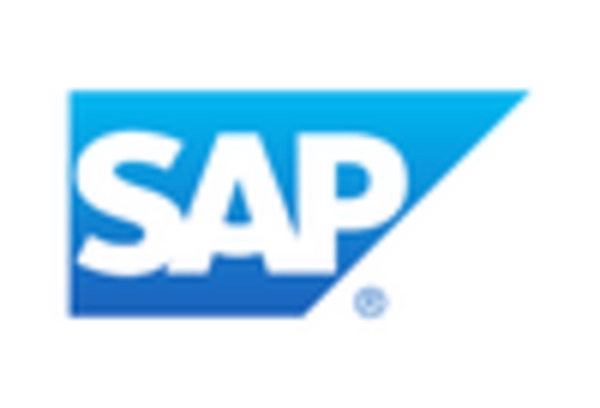Integration of IoT and Automation
The integration of Internet of Things (IoT) and automation technologies is a pivotal driver for the Manufacturing Operations Management (MOM) Platforms Market. As manufacturers increasingly adopt IoT devices, they gain real-time visibility into their operations, enabling enhanced decision-making and operational efficiency. The MOM platforms facilitate seamless communication between machines and systems, which can lead to a reduction in downtime and improved productivity. According to recent data, the adoption of IoT in manufacturing is projected to grow at a compound annual growth rate of over 25%, indicating a robust demand for MOM solutions that can harness this technology. This trend not only streamlines processes but also supports predictive maintenance, thereby reducing operational costs and enhancing overall performance.
Shift Towards Digital Transformation
The shift towards digital transformation is a significant catalyst for the Manufacturing Operations Management (MOM) Platforms Market. As manufacturers strive to modernize their operations, they are increasingly investing in digital technologies that enhance efficiency and competitiveness. MOM platforms play a crucial role in this transformation by integrating various manufacturing processes into a cohesive digital framework. This integration allows for better data management, improved collaboration, and enhanced operational agility. Recent market analyses indicate that the digital transformation in manufacturing is expected to reach a valuation of several billion dollars by the end of the decade, highlighting the critical role of MOM solutions in facilitating this transition.
Demand for Enhanced Supply Chain Visibility
The growing demand for enhanced supply chain visibility is significantly influencing the Manufacturing Operations Management (MOM) Platforms Market. As supply chains become increasingly complex, manufacturers seek solutions that provide comprehensive insights into their operations. MOM platforms enable real-time tracking of materials, inventory levels, and production schedules, which can lead to improved responsiveness to market changes. Recent statistics suggest that companies with high supply chain visibility can achieve up to 15% reduction in operational costs. This heightened visibility allows manufacturers to optimize their processes, reduce lead times, and improve customer satisfaction, thereby driving the adoption of MOM solutions across various sectors.
Regulatory Compliance and Quality Standards
Regulatory compliance and adherence to quality standards are critical drivers for the Manufacturing Operations Management (MOM) Platforms Market. Manufacturers are increasingly required to comply with stringent regulations regarding product quality, safety, and environmental impact. MOM platforms assist organizations in maintaining compliance by providing tools for documentation, reporting, and quality control. The need for compliance is underscored by the fact that non-compliance can result in substantial financial penalties and reputational damage. As such, the demand for MOM solutions that facilitate compliance with industry standards is expected to rise. This trend is particularly evident in sectors such as pharmaceuticals and food processing, where quality assurance is paramount.
Focus on Operational Efficiency and Cost Reduction
The focus on operational efficiency and cost reduction is a driving force in the Manufacturing Operations Management (MOM) Platforms Market. Manufacturers are under constant pressure to optimize their operations and minimize costs in order to remain competitive. MOM platforms provide tools that enable organizations to streamline processes, reduce waste, and enhance productivity. By leveraging data analytics and real-time monitoring, manufacturers can identify inefficiencies and implement corrective actions swiftly. Industry reports suggest that companies utilizing MOM solutions can achieve operational cost savings of up to 20%. This emphasis on efficiency not only improves profitability but also positions manufacturers to respond more effectively to market demands.

















